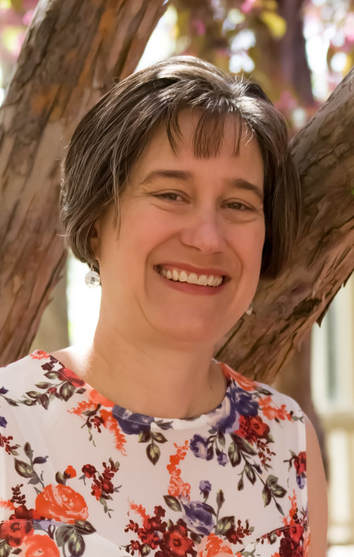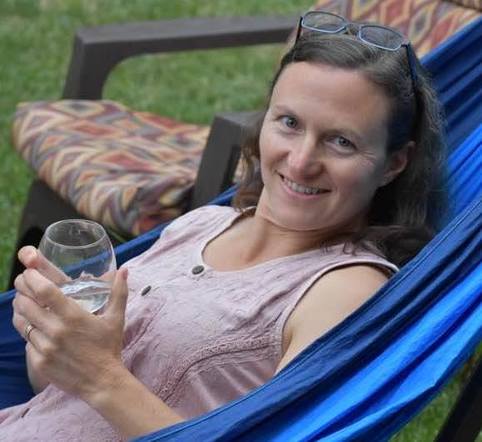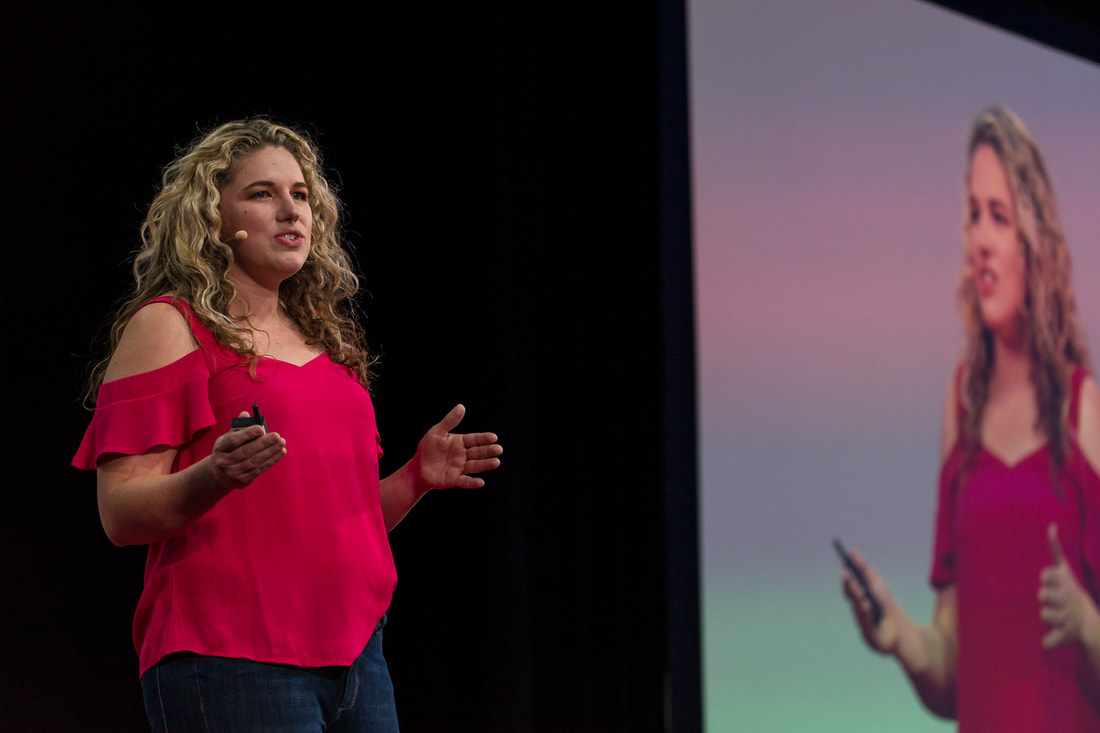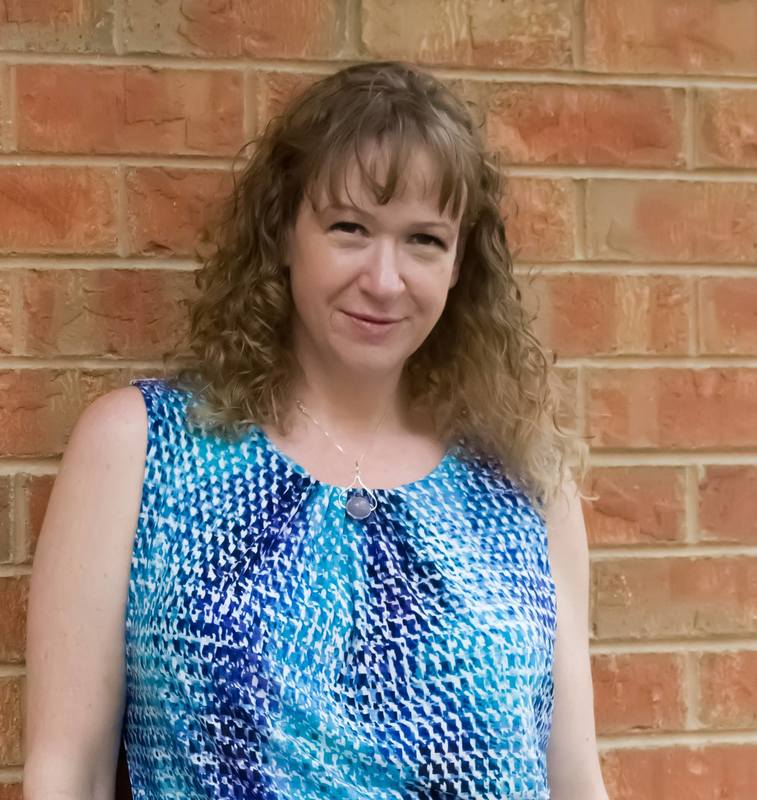 Sarah Kohls Roberts earned a Ph.D. in chemistry once upon a time, before she became a mom of three and an author. She writes children’s picture books, children’s nonfiction, and short stories. She lives in Fort Collins, Colorado with her family and a guinea pig with an attitude. This past December, I suffered a seizure. To be safe, my doctor put me on a driving ban for three months. It was two weeks before Christmas, and I struggled to rearrange my life. All aspects of my busy schedule as a mom with three kids had to be navigated. Friends and neighbors helped a lot. I took the bus, walked, and asked for rides. Some errands went undone. We used the online shopping and pickup service at the grocery store. I walked more and went to the gym less. My son walked home from after-school activities. My husband helped, but I felt guilty adding to his workload. My older daughter can drive, but couldn’t help much due to her academic and extracurricular schedule. To add to the difficulty, everyone in my family was sick sometime between December and April. During this crazy and stressful time, I did my best to continue with normal life. I wrote, edited, and queried. I attempted to keep up with critique groups, and participated in a writing contest. Everyone encounters difficult and complicated situations in life. Forward progress is still necessary, because the world does not stop for you. I was free for two wonderful weeks in March. Then I had another seizure. Once I recovered from the initial shock, the second round of my driving ban was easier than the first. My support systems were in place, warmer weather made it easier to bike, and my daughter’s schedule relaxed. Surprisingly, the lessons from this experience extend to my writing journey. Don’t be afraid to ask for help. Others are often more than willing to lend a hand, whether it is by giving you a ride, reading your manuscript, or connecting you to other authors or valuable writing resources. If you feel isolated in your writing life, or if you are stuck on some part of your manuscript, chances are you are not alone. Asking for help from other writers can be the break you need to get out of that rut. Be flexible (and forgive yourself). It’s important to have a routine as a writer, because it can be easy to get distracted or blow off that writing time. At the same time, it’s important to recognize that other priorities occasionally must take precedence. A sick child doesn’t care whether you meant to spend your day(s) writing. Depending on the circumstances, you may need to change your writing routine. If you are sick or dealing with a difficult situation, it’s all right to rest, recover, and manage your challenges. Just make sure you get back to work once the crisis has passed. Be patient. I am not patient by nature, so depending on others to get somewhere was a challenge. Having patience is critical for a writer. Once you send that manuscript to an agent or editor, you must wait for a reply, and hopefully an acceptance. All writers experience rejection, so this process continues for many cycles. Next you have to wait for edits, wait for beta readers, wait for book covers, wait for a book release date, wait, wait, wait… Know that there will be setbacks. Having another seizure three months after the first was a shock to me. It was a setback, but made me realize that this was not a random, passing thing. In writing, setbacks seem inevitable. They can stem from life events that affect our writing: illness, job loss, or extra care for a family member. Setbacks also come from writer’s block, seemingly endless rejections, difficulties with an agent or editor, or bad reviews. But they can spur us to action or cause us to reflect upon our journey and change something that isn’t working. Setbacks can be a learning tool. Value your support team. Through the past several months my family, friends, neighbors, and even mere acquaintances have assisted me in many ways. Their transportation help, friendship, and moral support have been invaluable. In my writing life, members of my critique groups, writing friends, and even random encounters with other authors have strengthened and supported me through both success and setbacks, and helped me to grow as a writer. Keep writing! Through months of illness and inability to drive, I had to keep going, even when I was frustrated or down. And so it is with writing. There are days when the story does not flow, I don’t want to edit my story yet again, and I am hesitant to query another agent. But we must keep stringing words together into stories. We must get them into the world. They are like hungry babies or mountains of laundry—very hard to ignore. So recognize your talents, hold tight to your support system, be kind to yourself, and WRITE! You can do it. I have met many amazing authors. Some of them I see at conferences, some are critique partners, and some have become dear friends. Most authors are encouraging and helpful. One stands out to me personally. I first met Teresa Funke at a moms group, and eventually learned she was an author. She inspired a spark of an idea: maybe I could write my own stories. When I did begin, Teresa encouraged me and told me about Northern Colorado Writers. As I turned toward children’s books, she invited me to our local SCBWI meeting. Teresa is naturally supportive and willing to share her knowledge. She has been a mentor without knowing it, an upbeat advisor operating at the edges of my writing journey. I hope to do the same for other authors with the same grace. Sarah's Work in ProgressCurrently I am working on Blossom’s Wish, a picture book about a horse who dreams of becoming a unicorn. I have two additional manuscripts about Blossom, with a third in the works. I have written several other picture book manuscripts, as well as some short stories. Another project is a children’s nonfiction book that features scientists from different backgrounds and explains the process of becoming a scientist.
1 Comment
 Dani Coleman lives an idyllic life in Louisville, CO. If she could double the hours in a day, she would still not have enough time to write. When I was in first grade, I made my sister hold down the shift key on my mom’s typewriter so I wouldn’t have to worry about capitalization as I wrote a story. Although the anecdote lives in my family’s repertoire to illustrate how poorly I treated my dear sister, not to mention my lack of knowledge of shift-lock, I have no recollection of the actual story. But its existence marked the beginning of my call to be a writer. Not that I’ve made it a priority throughout my life. When it came time to choose a major in college, I studied math and science because I felt I needed the professors and homework sets in order to learn that material, where as I could read and write on my own. As an undergraduate, I often took a literature or composition class, not necessarily to learn anything but to reserve time in my life for reading and writing. This slipped away with the singular focus that was necessary to get a master’s degree, but by the time I got a job as a computer programmer, I knew I needed to build writing time into my life again. A personal project to read John Steinbeck’s entire oeuvre, including his mediocre first novel, led me to the conclusion that short stories would be a good way to hone my skills. To explore outside my comfort range and give me deadlines, I asked my husband to come up with assignments. I found that I was most inspired by what-ifs: not fantasy or science fiction exactly, but speculative variations on reality. So, I was receptive to a short blurb in Wired Magazine calling for fiction set in a climate-changed world. This was shortly after the term “cli fi” came to be used for climate fiction, whether speculative or not, and I realized I was uniquely positioned to write it. As a programmer on a climate models, I have easy access to intelligent society’s best projection to what the earth will be like in the future. And I’m already a writer. One morning on my hike to work, I realized that a climate-changed world would be a perfect setting for a character who had been wandering around my head. Woe to those who fall pregnant in post-apocalyptic Colorado. As I played with the idea, I realized it wasn’t going to fit into a short story. With some panic—our third child was one year old, I worked part-time and taught karate in the evenings—I calculated that I could write a novel in a year if I wrote five hundred words per day. It actually took one year and nine months. As I was finishing the first draft, a newsletter at work profiled another programmer and it mentioned that she also wrote fiction. She mentioned that Rocky Mountain Fiction Writers and I was intrigued enough by their website to attend their annual conference that fall. My first Colorado Gold conference was the biggest turning point in my writing career. Simply being around hundreds of people who were as excited as I was about writing revealed how important a part of my life this was. As the conference chair said, I’d found my tribe. I met people at various stages of their careers, and the conference provided workshops that should help me to attain those levels. And one of those hundreds of people was a neighbor of mine, who told me of a writing group in my hometown of Louisville, CO, owned by author Rachel Weaver. At the first speculative-fiction critique group hosted by the group, now a northern branch of Lighthouse, I met critique partners and began the long process of figuring out what needed to change in my novel. Rachel is one of those teachers who sprinkles all of her workshops with gems that make even the most basic lesson worthwhile. One of my favorites is that the first draft is you telling yourself the story and then you have to figure out how to tell others. It took over a year for me to re-balance the risk versus reward in the opening of my novel to make it believable to more than ten percent of readers, another year to show my protagonist’s strengths as well as her weaknesses and yet another to make the plot authentically exciting. This fall, I hope to be ready to pitch a complete, polished novel. My baby ages with the manuscript and she’ll almost be seven years old. No matter; one thing I’ve learned is that I’d rather work toward quality rather than deadlines. Meanwhile, I’ve had the idea to write a middle-grade novel to appeal to boys like my nephew, incorporating timely social justice themes. I had expected to revise some short stories and perhaps write a sequel to my current manuscript, but one more thing I’ve learned from writing it is to go where the ideas take me. http://www.wordsbycoleman.com/
 Brooke Linville is a writer, storyteller, and entrepreneur in Boise, Idaho. She is a single mom with two boys. Her published work can be found in Chicken Soup for the Soul: Christmas Magic, Entropy, Women’s eNews, the Idaho Statesman, and others. Her unpublished work can be found in folders and baskets around her house. Brooke’s on-stage stories have been featured in Story, Story Night, Boise Startup Week, and recently on the TedxBoise stage. She can be found online at brookelinville.com. I’ve been telling stories all my life: I told my life story to anyone who sat next to me on the United flight between Norfolk and Chicago on my way to my dad’s for summer vacation; I wrote an award-winning story in fifth grade about Hopper the frog who had to move from his mom’s lily pad to his dad’s; and I wrote about every notable event for my high school newspaper as the Editor-in-Chief for two years. Writing was as much a part of me as my thick, curly hair.
I didn’t major in creative writing though. As I approached adulthood, it seemed that “writer” was something you aspired to, dreamed of one day becoming. It wasn’t something you were. So I became a teacher, then started a web design and social media company, then helped my husband launch a virtual reality startup. I’m not sure they were any more reasonable career choices, to be honest. And yet, I felt like telling others that I was a web developer when they asked what I did was somehow more legitimate than writer. I wouldn’t have to tell them that the only place they could find my novel was shoved in file folders in the back of a closet. I did have publishing credentials – Women’s eNews, Chicken Soup for the Soul, Entropy. But it never felt like enough to justify the title: writer. After my divorce in 2016, I recommitted to my writing. I finished the aforementioned novel, submitted it to agents, got some really helpful feedback. I loved writing that story, but I agree with the agent that told me that it wasn’t the novel I should launch my career with. Career, she said career. So I’ve put that project on the shelf, and now I’m back to writing, exploring, considering, drafting, revising. And learning. One of my biggest challenges in writing narrativ es has been with story structure. I can write a nice sentence, but those thoughts don’t always come together in a satisfying story arc. So I’ve decided to take a few months and throw myself into learning as much as I can about perspectives on outlining and developing plot points. It’s my version of a self-made MFA. As a regular attendee at writer’s events, I’ve also begun to pay attention to what makes a presentation memorable and engaging. Being able to tell a story on the page doesn’t always translate to being able to tell a story on the stage. In addition to honing my writing craft, I’ve also turned to learning more about live, on-stage storytelling in hopes that one day I can give memorable talks at writer’s conferences and other events. The first time I stood before a crowd of two or three hundred telling a story without notes, I was terrified, my voice shaking and my hands trembling. But I’ve continued to do it, and I’m starting to overcome the fear and be more confident in that skillset. It’s exciting to see performance reemerging as a part of storytelling. As a result of this work, this last month, I gave a Tedx talk in Boise about helping raise $12 million to save my college. I drafted the story as I would any other for submission, revising and rewriting. And then I worked in my public speaking skills to be able to effectively deliver the message, practicing the talk several times a day, continuing to tweak as it was spoken aloud. Though not necessarily publication related, I consider it a highlight of my professional development to date. I still have a web design business and do some social media consulting. But if you find me at a dinner party and ask me what I do, I now answer, “I’m a writer.” Find Brooke's Tedx Talk here!  Trai Cartwright, MFA, is a 25-year entertainment industry veteran and creative writing specialist. She teaches, produces, and writes screenplays and novels, and can be found at www.craftwrite.com. While in Los Angeles, she was a screenwriter, independent film producer, and story consultant and development executive for HBO, Paramount Pictures, Universal Studios, New Lines Cinema, and 20th Century Fox. Trai currently teaches creative writing, screenwriting, and producing for the Colorado Film School and two online master’s programs, writers groups, conferences and cons, and one-on-one as a development and story editor. She is the screenwriter for Secret Ellington, and producer of docu-series Hidden Tigers. Moments of epiphany in writing:
Letters Form Words: A.N.T. equals “ant.” What?? Five-year-old mind blown. As soon as I accumulated enough words, I started writing stories. About ants. And cats. And dogs. And Jane. And John. They ran. A lot. This was the beginning of my way of making sense of the world. Writing Staves off Boredom: In the 4th grade my teacher and I didn’t see eye-to-eye. I was bored. I asked for more work. She told me to sit at my desk and wait until everyone was done with the assignment. I glared bloody eight-year-old doom at her. For weeks. She and my parents corrected me. That’s when I started writing books at my desk. Now I finished my school work even faster, so that I could get back to writing. Writing Saves Lives: Growing up wasn’t the safest endeavor for me. Poor parenting and all that. I stayed in my room and wrote to avoid detection by my violent family. I completed seven books by age thirteen. Writing Out Loud (Almost) Wins Prizes: My eighth grade teacher noticed I was smart but very, very quiet. She invited me to stay after school (and avoid the lousy parents) and write a speech and practice performing it. Turns out I had something to say. I won the school contest. Then the city. Then the region. I did not win State, despite a standing ovation. I’m pretty sure that’s because the girl who won did so because she was a foot taller, much thinner, blonder, a cheerleader who wasn’t awkward in her skirt. But the audience knew who really won. They let me know after, in the hallway. I felt bad for the cheerleader, because she overheard. Screenwriting Bites: And it bit hard. I discovered screenwriting, my forever-medium, in college. When you find your natural habitat, the lure sinks in deep and you swim for the rest of your life with it lodged in your cheek. I’ve got three spiritual homes in this world: Oakland, California; Galway, Ireland; and screenwriting. College Stories, When Revision Is Applied, Get Attention: For years, I worked and re-worked the first screenplay I ever wrote. An Oscar-winning producer optioned it when I was 25. A big agency repped it. Despite rewriting Little Man Travels many times and having held jobs at the studio level by this point, I wasn’t ready to be a Big Time Screenwriter. It’s better it didn’t sell. But it gave me a taste. I understood the work that was going to be involved, and I understood that I wasn’t mature enough to take on a massive career such as was proposed. Back to the salt mines. Sometimes Other People’s Stories Are Yours: I didn’t mean to be a producer. It happened because another writer’s screenplay wouldn’t leave my head. So I gave notes, many times, and many times, the writer came back with a better and better script. And then one day it was ready to be a movie. And I was suddenly a producer. So I produced a few movies, mostly because I loved the writers so much. More Options, Please: Five of my screenplays have been optioned. I have always had representation. This was what keeps a writer going in Los Angeles. People constantly told me they loved my writing; what else did I have? So I wrote more scripts. I got really good. But never quite hit the script that sold. When LA Burns, Write Fiction: Los Angeles had an epic fail. A cascade of events unraveled our economy (most predominantly, a protracted writer’s strike). It destroyed the spec script industry, which was how, back then, writers broke in. The epic fail begat the golden age of TV. And would eventually shift the business from Hollywood to places like China and Silicon Valley. I knew it would take years for the business to regenerate. I didn’t have the energy to wait. So I quit. And did what lots of other folks did: I went back to school. MFA’s Are Dangerous: Beware programs that don’t let you write what you write. Or don’t teach you about the business. I quit my first program within six weeks. MFA’s Are AWESOME: At UC Riverside, I reduced the learning curve to acquire fiction skills to just three years. Much faster than my screenwriting evolution. I loved my program. I have written three books. One day I’ll finish the one that everyone says will sell. Colorado Has No Use for My Freakish Skillset: When I got back to my home state, I was greeted by crickets. No one knew what to do with a filmmaker. So I created a wee empire on my own. I found the screenwriters, the filmmakers, and taught them everything I knew. When I had my MFA and some confidence speaking in front of people, I taught Fiction and Nonfiction and Memoir and Teleplays and Web Series at universities. I became an infinitely better writer. Shhhhh. Don’t tell anyone, or every writer will rush classrooms, having heard that teaching shows you what writing really is and how it’s really done. Sometimes I Get Hired to Write: I’ve got a couple projects out there in the marketplace. But mostly I get hired to teach and to edit manuscripts, and I love it unreasonably. Working with writers is my heart. Writing stories is my nervous system. Together I am almost a human, and the world sometimes makes sense. |
AuthorI'm generally pulled in a million different directions and I wouldn't trade it for the world. Here's a glimpse of my life - hope you enjoy it! And if there's a big lapse between posts, well, that's the way life goes in Amy's world. Archives
October 2022
Categories
All
|
|
Copyright 2024 by Amy Rivers. All rights reserved. |
 RSS Feed
RSS Feed